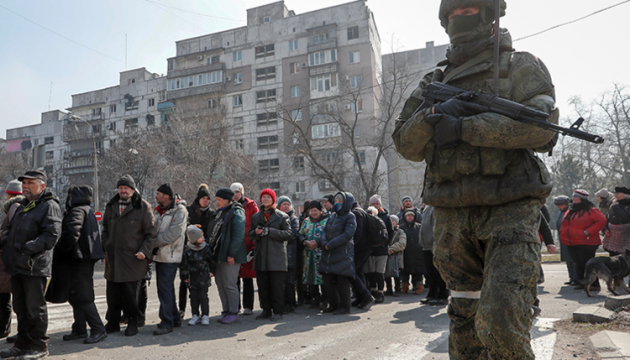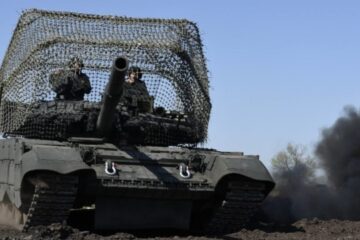
The Russian Federation is carrying out ethnic cleansing in the temporarily occupied territories by evicting Ukrainians and assimilating them, which, according to international law, is a form of genocide. This policy of the Russian Federation requires an immediate response from the international community to stop this practice. Regardless of whether the hostilities continue or are stopped, it is necessary to introduce mechanisms of international control over the observance of human rights in the temporarily occupied territories, in particular through the deployment of a UN mission.
This was reported by Ukrinform, citing a Guildhall.
Thus, the report considers a set of measures of the Russian Federation to oust Ukrainians from the TOT, in particular, the recent decree of Russian President Vladimir Putin (dated March 20, 2025, No. 159 “On the Specifics of the Legal Status of Certain Categories of Foreign Citizens and Stateless Persons in the Russian Federation”) as the final stage of such a policy. Analysts note that the document obliges Ukrainian citizens in the occupied territories to either obtain a Russian passport or leave the occupied territories by September 10, 2025 – leaving Ukrainians no choice: either eviction or assimilation.
The analysts emphasize, referring to the Geneva Convention (IV) on the Protection of Civilian Persons in Time of War (1949), the Rome Statute of the International Criminal Court (Articles 6, 7, 8), as well as the UN Office for the Prevention of Genocide, that forced deportation and eviction are criminalized actions under international law and qualify as ethnic cleansing.
Separately, the report analyzes the policy of assimilation of Ukrainians through the forced elimination of Ukrainian identity. The experts emphasize that according to the UN Convention on the Prevention of the Crime of Genocide (Article II, paragraphs “b” and “e”), genocide recognizes not only actions aimed at physical destruction, but also causing serious mental harm to members of a group. International jurisprudence – in particular, the decisions of the International Criminal Tribunal for the former Yugoslavia (Prosecutor v. Krstić) and the UN International Court of Justice (Bosnia and Herzegovina v. Serbia, 2007) – confirms that the destruction of a group’s language, culture, identity and self-identification can be considered part of a genocidal policy if such actions are committed with the intent to destroy the group as such.
Thus, the analysts note, pressures to forcibly assimilate, ban a native language, displace and destroy cultural identity fall under genocide under international law.
“The Fourth Geneva Convention (1949) and UN Security Council Resolution No. 1674 (2006) place the protection of human rights at the heart of conflict resolution. This principle must be enshrined in all negotiation frameworks. Furthermore, international humanitarian law imposes clear obligations on occupying powers to safeguard the rights of civilians.” the experts emphasize.
Earlier, the UK Ministry of Defense, citing an intelligence report, said that 3.5 million Ukrainians in the TOT received Russian passports, as the Kremlin threatens people with confiscation of property and restriction of social services. Also, the occupiers do not sell vital medicines to Ukrainians without a Russian passport in the Russian-occupied territories of Ukraine. Thus, the decree on the legal status of Ukrainians signed by Russian President Vladimir Putin is aimed at forcing Ukrainian citizens living in Russia or in the occupied territories to either accept Russian citizenship or leave these lands, Radio Svoboda has said.
Source: Russia conducts ethnic cleansing in occupied territories through eviction, assimilation



